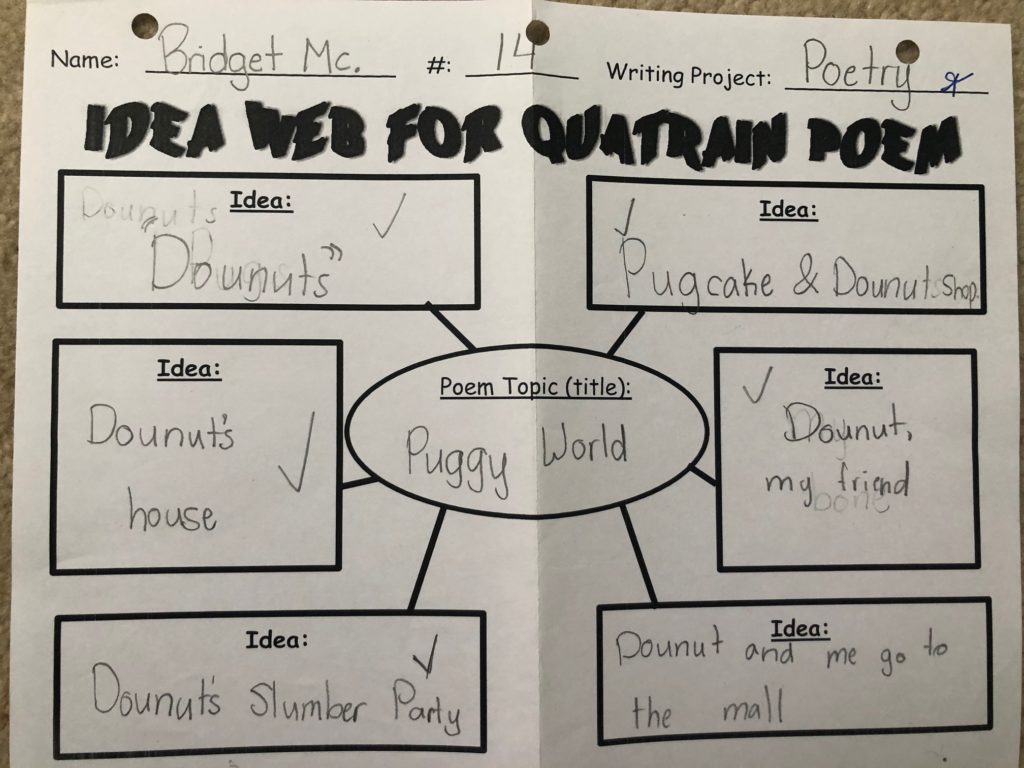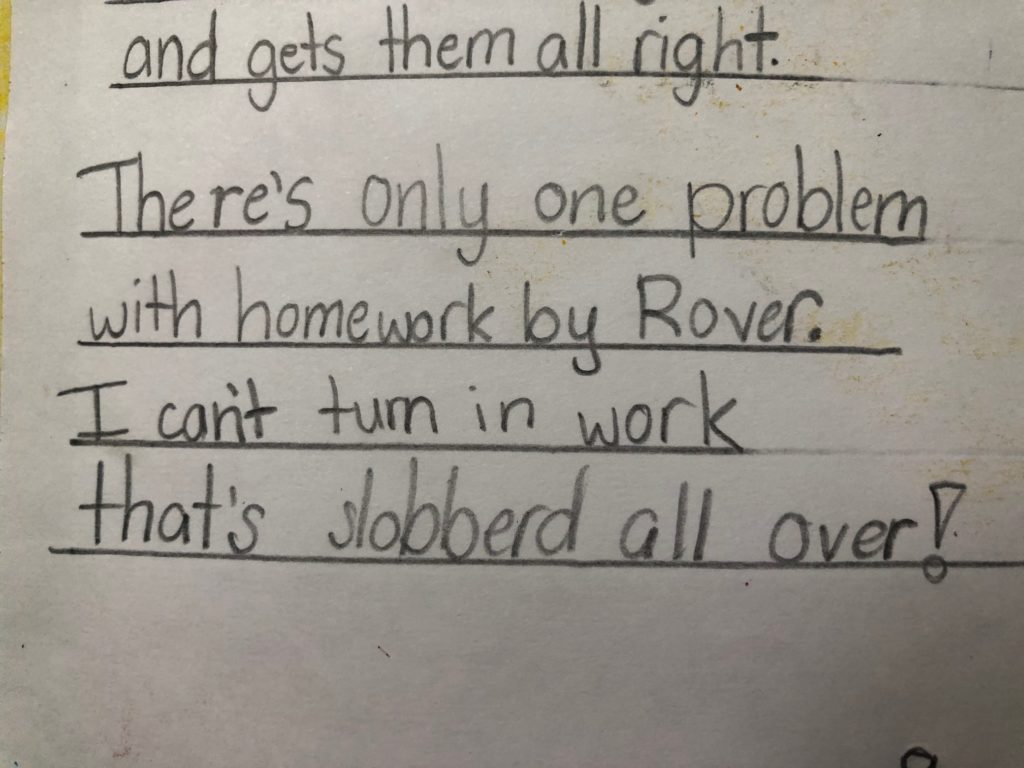
One of the things I loved the most over the past two decades as a parent is when my kids were in preschool and grade school, learning how to read and write. Most specifically, it was that window of time when they were learning phonetics and bringing home papers from school with the most hilariously misspelled words you’ve ever seen. It was cute, funny, and every single time it was phonetic perfection. I would take a photo, text it to my sisters and we’d laugh about the cuteness of it all.
My nephew had the most adorable lisp when he was younger. We loved talking to him and hearing his sweet voice. We actually said the words, “We hope you talk like this forever!”
Or even my son who didn’t speak for his first three years, communicated through grunts, and developed his own way to tell us what he wanted or needed. It was frustrating at times (lots of times, to be honest), but we knew that it was something he’d outgrow.
We really didn’t hope that our kids never learned to spell or talk, or that they would have a speech issue growing up. But that’s a natural part of childhood and development, and we tried to take in those sweet moments that we knew wouldn’t last forever.
As part of language development – and with the help of educators, speech therapists and aides – all are speaking and communicating clearly and effectively. Doesn’t every child deserve this opportunity?

Over the past few years, with two adult children of my own, we’ve realized the pretty great people they’re turning out to be. And as I’ve told them over and over, no one gets through life alone. We owe our successes to partners, teachers, mentors and friends. Our youngest daughter finished up her freshman year at Kent State University, and we talked at great length about her experience there. She commented on how much help and guidance she received from professors, and how that got her through it all. She talked about her math professor who spent hours on the phone with her one evening since she finished the semester online due to COVID-19. What I told her over and over is that these advisors and professors are there to help, and just as much as she does, they love to see the progress she has made.
And similar to professors, we know there are amazing speech therapists ready and excited to help, and we know there are children in need.
When we review the grant applications at Orange Effect Foundation board meetings, we hear from families struggling to have their child say one word, communicate in some small way, have the ability to play with friends, and more. In the past five years it’s been amazing seeing the young grant recipients and their parents beaming with pride and excitement when their child makes any improvement in communication. These families – and so many like them – know the value of professional help and guidance, and understand the necessity for consistent support.
Access to consistent professional speech therapy: that’s the backbone of The Orange Effect Foundation.

